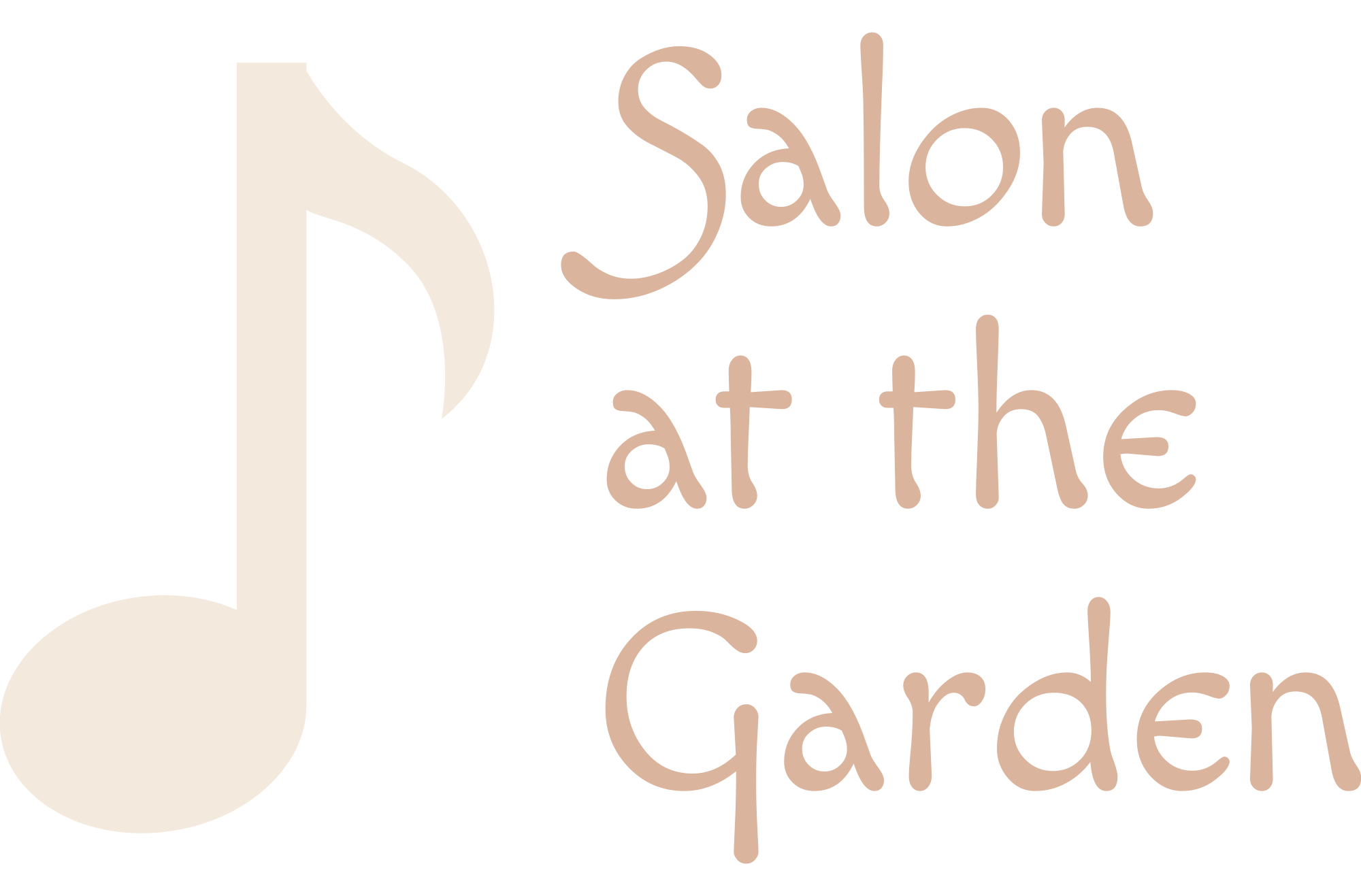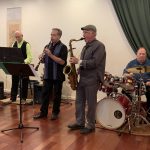The theme of our November 4 Salon was “Storytelling in Music” an opportunity for exploring the stories that great musicians tell with their music. Every one of the four presentations told a rich and vibrant story allowing the audience to discover elements that often go unnoticed by untrained ears. The Q&A after each performance was enlightening as the performers took the time to illustrate the essential story of their pieces, talk about their instruments, and explain styles and approaches.
We strive to feature young musicians at each of the salons, and the audience is always amazed at the advanced talent we have been able to feature. The opening act was Leo Kubota’s interpretation of J.S. Bach’s Suite No. 6 in D Major, BWV 1012 1. Prelude followed by Debussy’s Sonata for Cello and Piano in D Minor. Leo is a superbly talented, 15 years old, who studies with Thomas Landschoot, professor at ASU, and we were especially pleased to have Mr. Landschoot in the audience with us. Leo gave a commanding performance of both pieces, controlled and very pleasing. He gave the audience the space to engage with the music that he had memorized! It was clear to all of us that Leo has immense potential. The story, as told by Debussy himself, is that he wrote his sonata and initially named it “The Pierrot Angry With The Moon” to represent a character of Verlaine’s poetry.
Jazz brought the next story. Charlie Smith, a pianist who studied under the renowned pianist Mike Kocour at ASU, offered a creative tour in the company of some of piano jazz greats. He started with a ragtime tune and the creative power of Scott Joplin at the turn of last century, followed by the rhythms and harmonies of Willie Smith, and Art Tatum. Charlie’s passion for jazz was evident to us all as he excitedly (and without reference) shared information about the masters of Jazz in shaping this genre. Charlie told many stories that highlighted the greatness and virtuosity of Art Tatum and showed a bit of his techniques. He shared a quote by Fats Waller, one of most respected
pianists of the time, “I only play the piano, but tonight God is in the house” referring to the presence of Art Tatum in the jazz club. It was a refreshing perspective by a brilliant jazz pianist.
The Arizona 1712 Ensemble was a beautiful experience in time travelling. The five musicians played Baroque music on traditional instruments for which it was composed. The five musicians all specialize in period-perfect performances and have long lists of performance credits: Jaime Ondrusek, Baroque Flute; Marc Goldstick, Baroque Oboe; Cindy Baker, Baroque Violin; Barbara Bailey Metz, Gamba; Chuck Sedgwick, Harpsichord. They even had an amazingly beautiful, to the eye and ear, harpsichord brought into the room. The instruments are different from their modern counterparts and the techniques are also specialized. Mark Goldstick shared that modern instruments are “like machines” whereas these traditional instruments are “like pets that need to be specially cared for and nurtured”. We learned about the profiles of each instrument, their history and construction, and their role in the orchestras of the time. Their program was remarkable because it included bits of the history and conflicts between Italian and French composers about these pieces:
Marche pour la Ceremonie des Turcs (from Les Bourgeoise Gentilhomme) by Jean-Baptiste Lully (1670)
Excerpts (7 movements) from L’Apotheose de Lully by Francois Couperin (1725)
Chaconne (from L’Amour Medecin) by J-B Lully (1665)
The Odessa / Rural Street Klezmer Band was the closing act. Klezmer music is equally folk music, traditional Yiddish theater music and Jewish spirituals. The quartet is Stu Siefer on tenor sax, Ted Zislis on keyboard, Chuck Gealer on clarinet, and Alan Kannel on drums. It is the traditional music of Eastern European Jewish societies that has been revived in last 40 or 50 years by passionate students of the culture. The music speaks both to the ecstasy and despair of human life, but it leaves the listener with lasting sprinkles of joy, courage, and optimism.
As we all shared in the grief of the recent tragedy in the Pittsburgh synagogue, the music exemplified life as was a moment to accept the pain and be joyful about the day of tomorrow. This ensemble had the entire audience clapping and singing with a few getting up to dance. It was the perfect finale for a story with a happy ending!
As this Salon came to an end, we are all thankful for the joyful stories and surprises shared by each performer tonight.
[su_youtube url=” https://youtu.be/T2u44noG7uc” width=”480″ height=”360″]
The next Salon will be Sunday, April 21, 2019.




